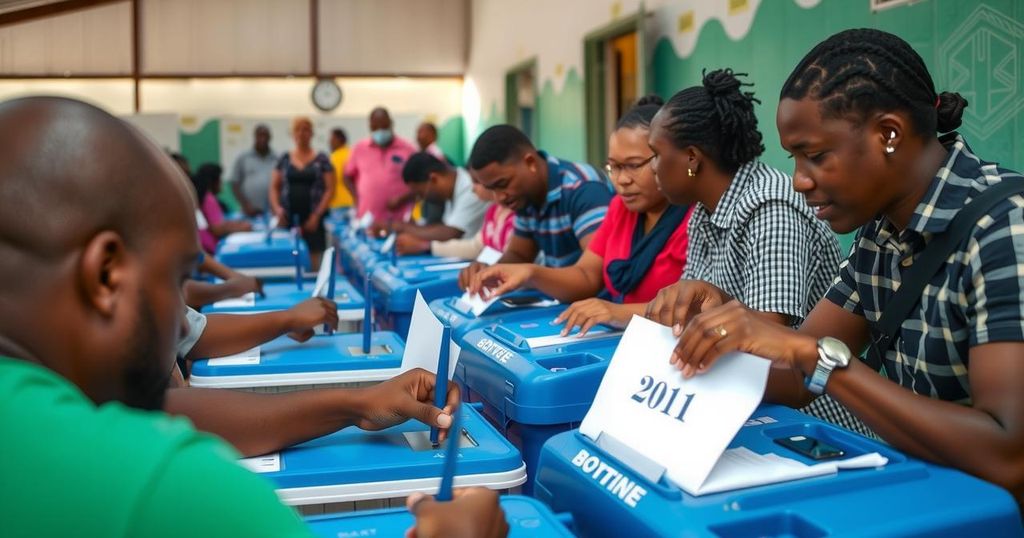On Sunday, voters in Comoros cast ballots to elect a new parliament. Following last year’s controversial election of President Azali Assoumani, which was marred by allegations of fraud, the political climate remains charged. Approximately 338,000 voters are eligible, with nearly 100 candidates competing. Polls close at 4 p.m., and results are expected by January 17.
On Sunday, voters in Comoros participated in elections to select representatives for the archipelago’s 33-seat parliament. This electoral process follows President Azali Assoumani’s controversial reelection last year, which the opposition criticized as fraudulent. Despite the allegations, officials from the ruling party have dismissed claims of electoral misconduct.
Polling began at 8 a.m. with approximately 338,000 eligible voters poised to cast their ballots. With nearly 100 candidates approved by the Supreme Court to contend for parliamentary seats, the political atmosphere remains tense. Assoumani’s administration has faced accusations of authoritarianism from rivals, who speculate on his plans for his son, Nour El-Fath, to succeed him in 2029. Since seizing power in a coup in 1999, Assoumani has won three elections.
Last year, Assoumani endowed his son with significant administrative authority, intensifying opposition concerns. Although some parties, including Juwa, led by former President Ahmed Abdallah Sambi, who is serving a life sentence, have called for a boycott of the elections, others have chosen to participate. Hamidou Karihila of the opposition Hope of the Comoros party stated, “The Azali regime is weakened … by participating in these elections we are contributing to further exposing the flaws in its system and accelerating its inevitable fall.”
The polling stations will close at 4 p.m., with results anticipated by January 17. The persisting political turmoil and the dynamics of the upcoming parliamentary composition will be crucial in shaping Comoros’ future.
The political landscape in Comoros has been marked by instability and allegations of electoral fraud. President Azali Assoumani’s governance, which commenced after a coup in 1999, has been characterized by claims of authoritarianism and suppression of the opposition. The recent elections, occurring a year after Assoumani’s reelection, reflect ongoing tensions as opposition groups contest both the legitimacy and fairness of the electoral process. The involvement of his son in governmental affairs further complicates perceptions regarding succession and power consolidation within the ruling party.
In summary, the parliamentary elections in Comoros highlight the continued political strife and the challenges facing the nation. With a significant voter turnout amidst accusations of authoritarian governance and a contentious electoral environment, the results will profoundly influence the future political direction of Comoros. The participation of opposition parties in the elections also indicates a complex relationship with the ruling regime as they confront their political realities.
Original Source: www.voanews.com






